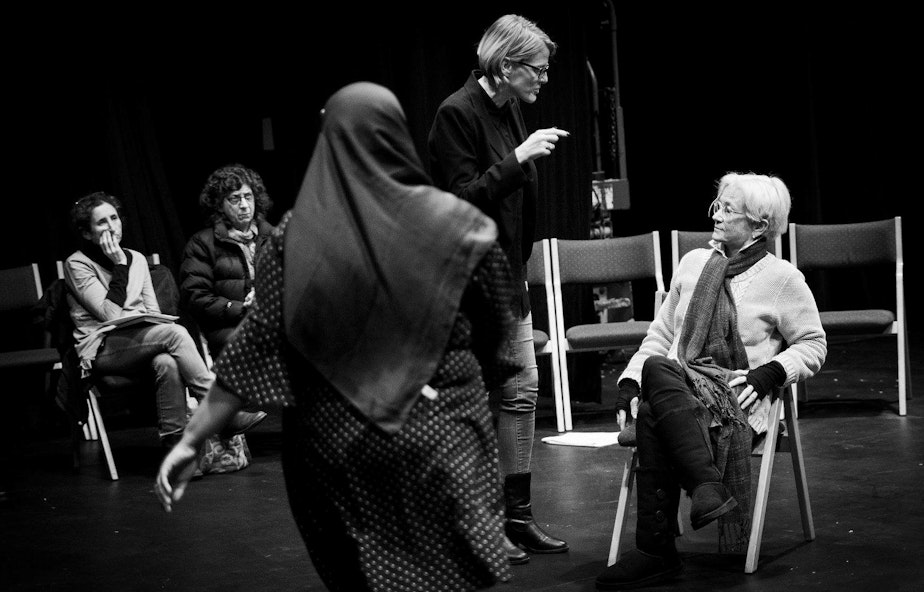See someone being threatened? This is what to do

Have you ever seen someone being harassed or assaulted? Were you afraid to intervene, in case the perpetrator turned on you?
Amina Ibrahim is an outreach coordinator with the Washington chapter of the Council on American Islamic Relations (CAIR). She trains people in bystander intervention.
Ibrahim said that being afraid to help someone is a normal reaction. If you do want to intervene when someone is threatened, she recommends that you first introduce yourself to the victim, make eye contact and offer your support.
“Go up to them and say hi, are you okay? Do you want me to sit with you? Do you want to walk and sit where I am on the bus or should I keep you company?" Ibrahim said. "Allow the targeted person to tell you what they want you to do. And that is a simple way but a really powerful way of showing people that you're there for them.”
That may seem counter-cultural and even uncomfortable for both adults and kids. We usually consider confronting the perpetrator, not the person in trouble.
But Ibrahim said emotions run high in these situations.
“Fear is heightened, you're feeling angry and sometimes our impulsivity tells us to go and talk to the attacker but in our bystander aggression training, we actually say do the exact opposite, ignore the perpetrator, make this all about the targeted person,” she said. Ibrahim found that leads to more resolutions.
What often happens, if you approach the attacker, he or she might focus their attention on you, said Ibrahim. They go from harassing one person to harassing you. By approaching the targeted person, she said, you completely ignore the perpetrator.
“Eventually they'll stop doing what they're doing. If they're being ignored and you're acting like they literally aren't even there, hopefully they'll stop saying these things and you can provide help to the person who's facing the hate crime or the incident,” Ibrahim said.
She said CAIR started this training because people were being harassed in public and bystanders didn't do anything. She said having someone, even a stranger, come up, introduce themselves and ask how they can help, makes the person feel visible and supported.
The next CAIR bystander intervention training is March 11 at the College Club Seattle.
Produced for the web by Katherine Banwell.




